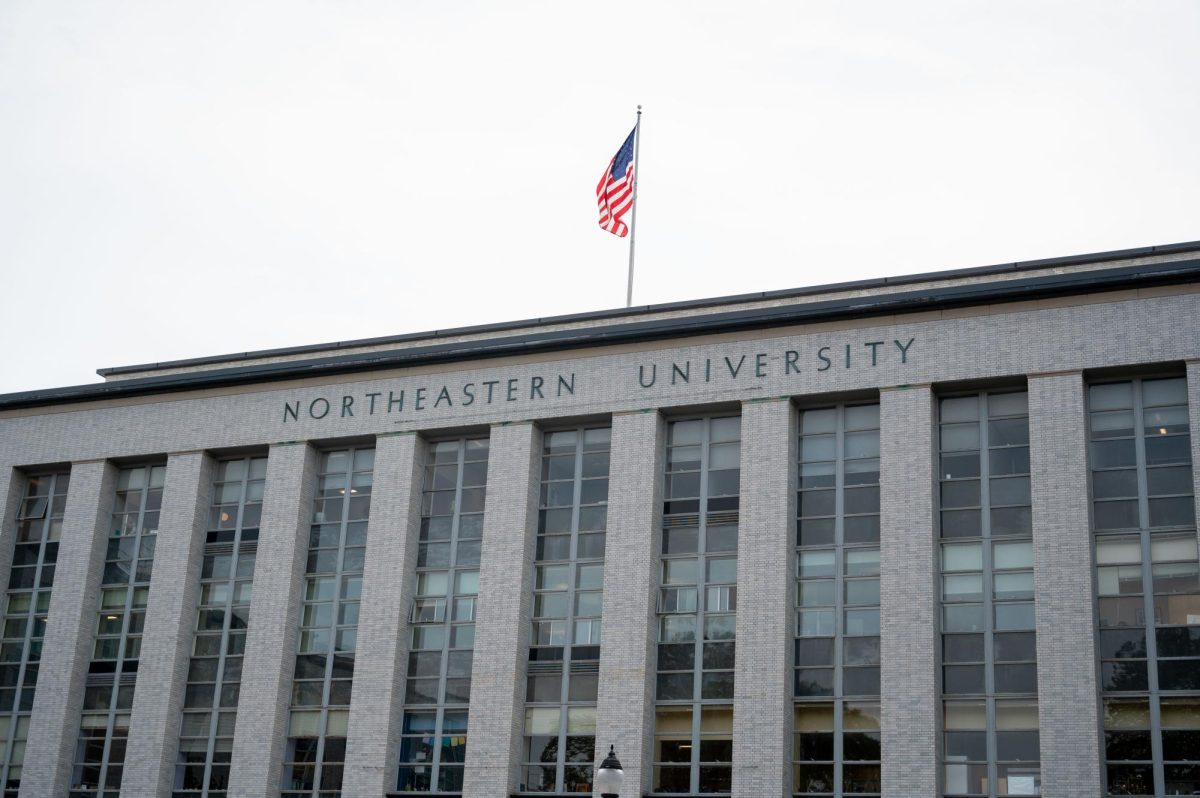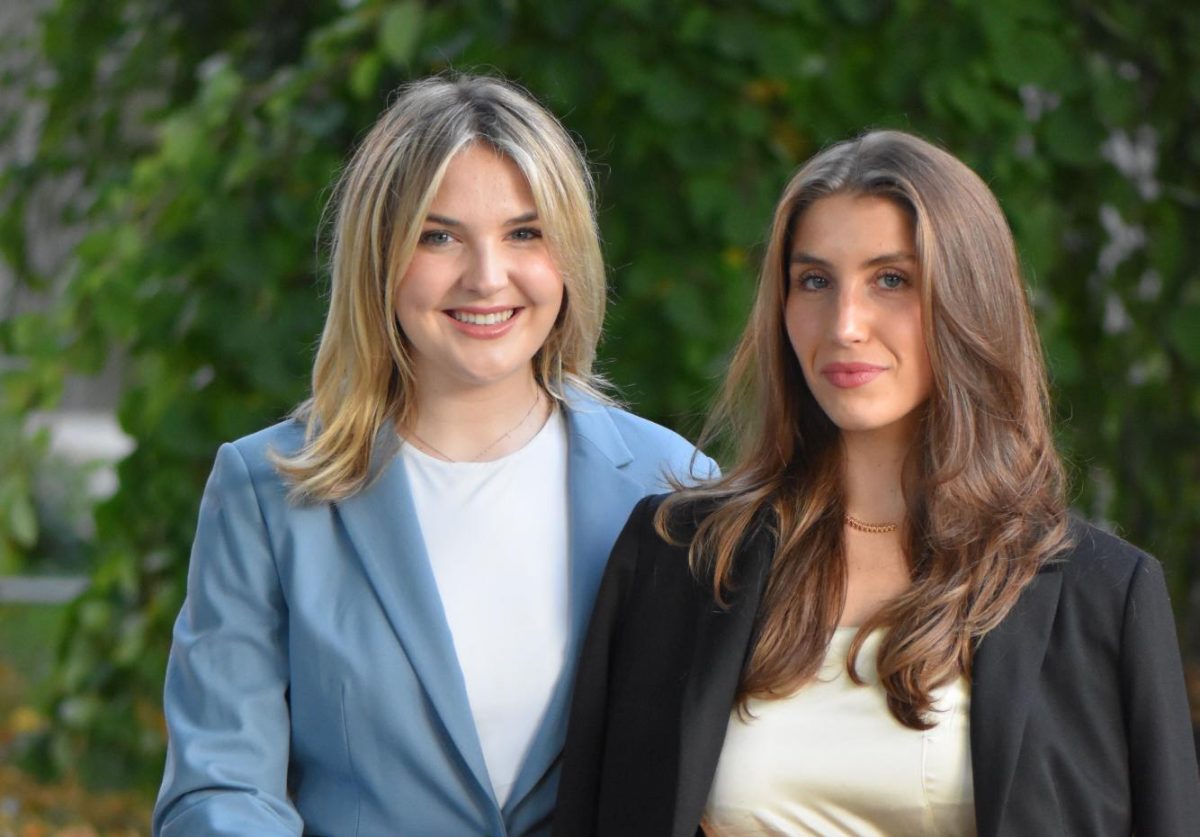Their faces said it all.
As they left President Richard Freeland’s office yesterday, it was evident the concert the three student leaders had worked so hard on was no longer a reality.
In 15 minutes, the 2004 Springfest concert was transformed from the largest performance in Northeastern history to the largest disappointment in recent memory.
“I’m just exhausted from all of this,” said Tom Kneafsey, the president of the Council for University Programming (CUP) that spearheads Springfest. “I can only speak for myself, but I think the trust will be missing for a while. How could it not be?”
At this time last year, the Student Government Association promised a big name act. And in January of this year, CUP delivered on the promise.
But at 3 p.m. Tuesday, Freeland announced the concert scheduled for April 2 would be postponed until the fall semester. Ludacris, booked as the main act, and Jurassic 5 as the opener, would be notified.
“To the students, this discussion was about a concert; to me this was a discussion about the university. This is a discussion about who we are and how we are perceived,” said President Freeland in a meeting after he announced the postponement to student leaders. “And it really is that context, reflecting on it last night after the meeting, that led me to feel that to go ahead with the concert right now is a serious mistake for the university. I don’t think we need to cancel it … but I do think we need to postpone it.”
SGA President Michael Romano, one of the three student leaders to hear the news first, said he was shocked by the president’s decision.
“Disbelief is always the first reaction, followed by anger and then, probably, nine times out of 10, followed by more disbelief,” he said.
Along with Romano, Kneafsey and SGA Executive Vice President for Student Affairs Allyson Savin were present for Freeland’s decision.
Freeland said he agonized over the decision to postpone the event, but hoped student leaders would continue to work with administrators in unison.
“I’m sure there will be disappointment, I’m sure there will be some anger,” Freeland said. “My hope is that students step back from this a little bit and will be able to see both the opportunity that this represents … and the importance of paying attention to the opportunity.”
Kneafsey was informed late last week that the annual concert, a university tradition, would possibly be axed because of safety concerns in the wake of the Super Bowl riots. Kneafsey and his board members had already started planning for the event, which had been allocated $195,000 from the student-run Budget Review Committee.
Kneafsey, along with Romano and Savin, received a call early Tuesday morning that the president needed to meet with them to hand down his decision regarding the concert’s future.
“Today it is really hard for me to conceive that we’ll recover from this, but we’ll try. That’s just the spirit of CUP, that’s just the spirit of student leaders,” Kneafsey said. “We’ll try, but it won’t be as good as this was going to be.”
Romano was also present, along with Savin and Kneafsey, at a meeting Monday night with Freeland in which Public Safety and Public Affairs representatives argued for the cancellation of the event. Romano said he understands what the university is articulating, but said the administration has forgotten who Northeastern’s most important client is – the students.
Vice President for Student Affairs Ed Klotzbier was also present at the Monday and Tuesday meetings. Klotzbier said he understands how much work and planning went into the much anticipated event, but also understands where the president is coming from.
Although Klotzbier was filling his other role as the director for university communications at Monday’s meeting, he said students need to prove to the community, both internal and external, that Northeastern students do not deserve the “black eye” they have received in the aftermath of the Super Bowl riots.
“It’s not that the students here couldn’t put it together. It’s that we took the ball out of their hand,” Klotzbier said.
Romano, along with Kneafsey, said the administration is reacting to the media’s perception of Northeastern rather than reaching out to the university community.
“We have people’s attention right now, we fight with other universities in Boston for media attention. We’re it. We’re on stage, we are in the spotlight. We have a great opportunity to affirm what we are about,” Freeland said. “So my point is that this is not about trusting students and taking something away, it’s not about punishing people; it is about refocusing ourselves and perceptions of us on what we’re about.”
But student leaders disagree.
Romano said the administration is fearful of the genre of music, rather than the event in general.
“Jimmy Carter pulling the U.S. out of the Olympics didn’t work, and the university cutting the cord on a hip-hop act they are scared to death of won’t work either,” he said.
Kneafsey echoed Romano, stating the nature of the act may have contributed to Freeland’s decision to postpone Ludacris’ performance.
The axing of the Springfest concert, which Freeland said may be pushed to the fall semester depending on how the community is progressing, most likely will not feature the same artists. CUP will be forced to start from scratch.
“It will definitely hurt us in the entertainment industry. In terms of planning this year’s event, we’re pretty shot. Hopefully we will recover next year,” said Kneafsey, who has been a member of CUP for three years and is questioning if he will continue to stay active in the group next year. “Any future planning will take a lot more work than it will need to.”
Students who attended the President’s Mardi Gras breakfast last night were already aware of Freeland’s decision to postpone the Springfest event. Though bombarded with fliers, signs and a boombox blasting the axed artist, students voiced their opposition to the late afternoon decision.
“I am upset that they canceled it, especially for the reasoning President Freeland gave. I don’t think we should be punished for actions that happened over a month ago,” said Diana Church, a senior communications major. “When he says postpone, I don’t even think he’s gonna postpone. I think he’s gonna cancel it.”
Klotzbier said he, along with the students, will need to move forward and work together to build a stronger community.
“I think it’s unfortunate that the majority of our students are feeling penalized by the actions of a few, of some. It’s a long healing process. We owe the community a lot to demonstrate to them that we respect them,” he said.
Associate Director for Public Safety James Ferrier and Vice President for Public Affairs Robert Gittens said the decision is what the university needs, but also emphasized how difficult the decision making process must have been for Freeland.
The president has said he is willing to listen to student input.
“I’m here. I’m available for discussion,” Freeland said.
Freeland can be reached at [email protected].
– Staff writer Stephanie Vosk
contributed to this report.










